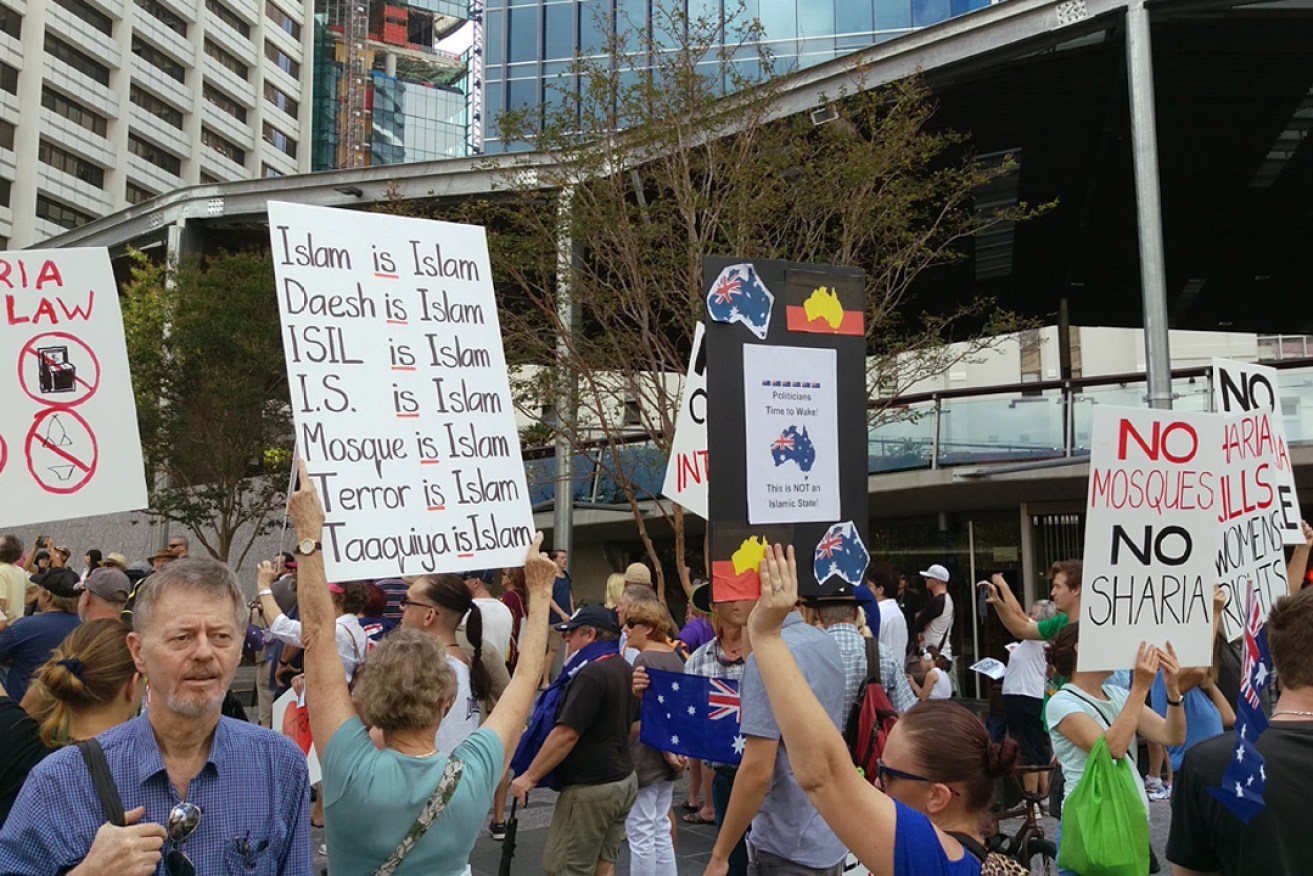One Nation rhetoric a “recruiting tool” for terrorists: military analyst
The “politics of fear” exercised by the One Nation political party help drive young Muslims into the hands of terrorist recruiters, an Adelaide counter-terrorism expert claims.


One Nation leader Pauline Hanson spoke at a Reclaim Australia anti-Islam rally in Brisbane last year. Photo: AAP
Dr John Bruni – a military analyst and counter-terrorism expert, and the CEO of strategic think-tank SAGE International – told InDaily the party’s rhetoric was contributing to the alienation of Muslims in Australia, which acted as a “recruiting tool” for terrorist organisations.
Pauline Hanson’s One Nation party – which has called for a ban on Muslim immigration, compulsory CCTV cameras in mosques and a royal commission into Islam – is likely to secure three Senate seats as the federal election count nears its final stages.
Hanson told the ABC’s QandA program last month that “people in Australia are in fear because they can’t walk in the streets, they’re in fear of terrorism which is happening around the world. Why? Because of Islam”.
“Because you have the radicalisation – radicalisation is actually happening in Australia,” she said.
Her concerns about Islam were repeated last night on the SBS documentary Pauline Hanson: Please Explain, which charted her roller-coaster political career.
But Bruni warned that One Nation’s own rhetoric “proliferates a sense of alienation that many Muslims feel [and] that just drives those alienated young Muslims into the arms of terrorist recruiters”.
“Alienation is a recruiting tool,” he said.
“The simple message is [that] this thing called Islam … is a threat to our way of life.
“By allowing groups like One Nation [a high profile] … it does give that sense that if you are a Muslim you are not one of ‘us’. [However] the more we push, the more we’ll find that people will start pushing back.
“One Nation will never be able to achieve those lofty heights [of the major parties] but they’ll do enough damage.
“Things are only going to get worse from now on if we don’t pull back from our most base political instincts.”
One Nation’s online policy platform states that “Islam has no place in Australia if we are to live in a cohesive society”.
“We have seen the destruction it is having around the world. If we do not make the necessary changes now to stop the advancement of Islam in Australia, there will be no hope in the future,” the policy statement reads.
Bruni said it was the responsibility of “mainstream” politicians to combat divisive rhetoric with a narrative of national unity.
“That ‘us and them’ thing has to be broken down,” said Bruni.
“There must be better way that our political masters can manage the message.
“You have to try to defuse all of this stuff … to make people feel welcome.
“We ought to take a colour-blind view of people coming into this country.”
He said the success of the One Nation party was an expression of anxiety about multiculturalism which had been growing throughout the Western world in recent years – the same social movement, he said, that has underwritten the popularity of US Republican presidential nominee Donald Trump.
Bruni argued for a new identity politics in Australia based on an “assimilation” and “integration” model that he said had succeeded in the US in the 1950s, but had since broken down, involving an identity that placed citizenship as the most important expression of identity – before country-of-origin, race or religion.
He said that multiculturalism had failed in Australia, because minorities were increasingly prone to identify more strongly with their country of origin, religion or ethnic group than with their citizenship as the political climate became more “fraught”.
InDaily contacted One Nation’s head office for comment.




